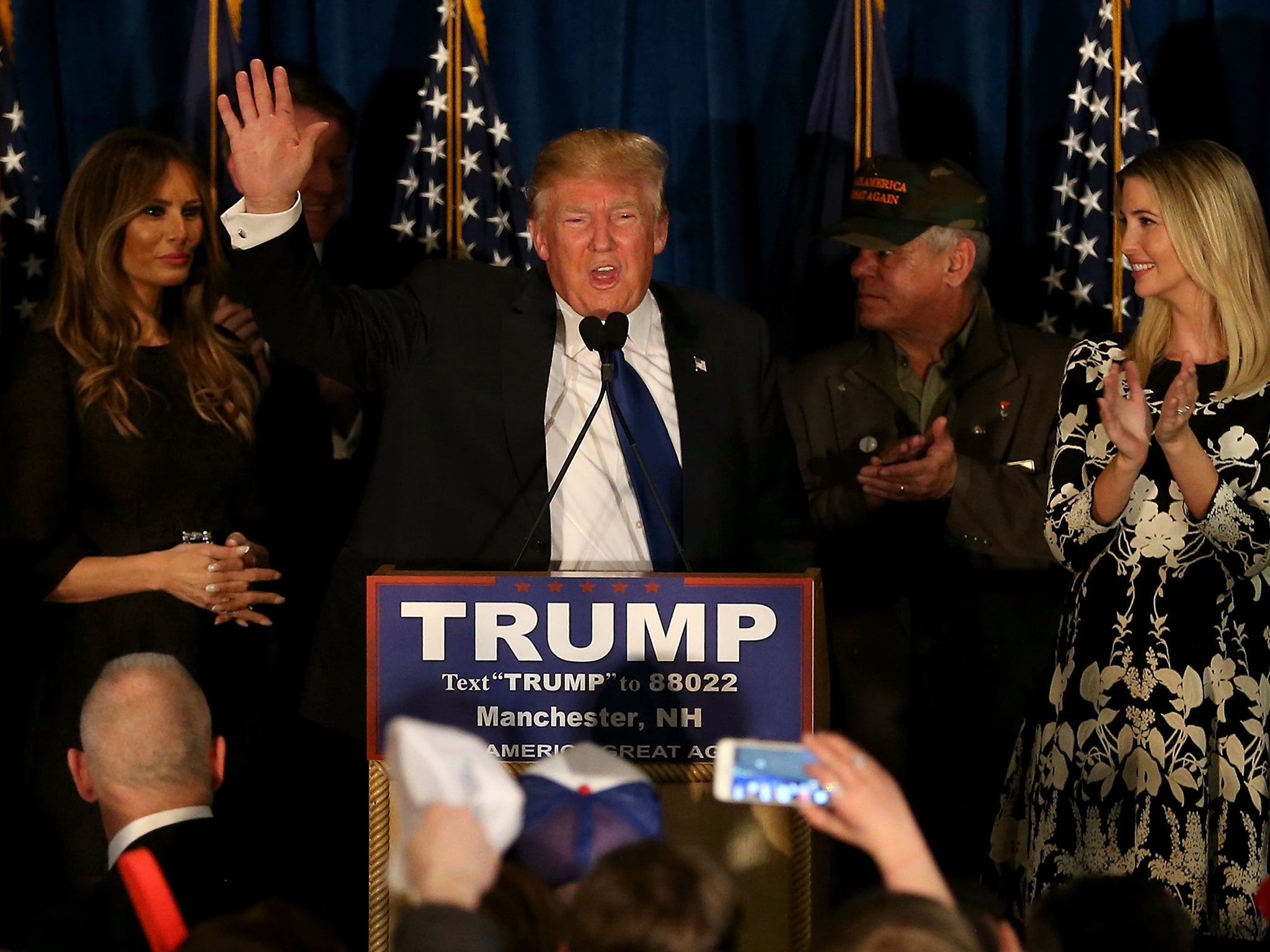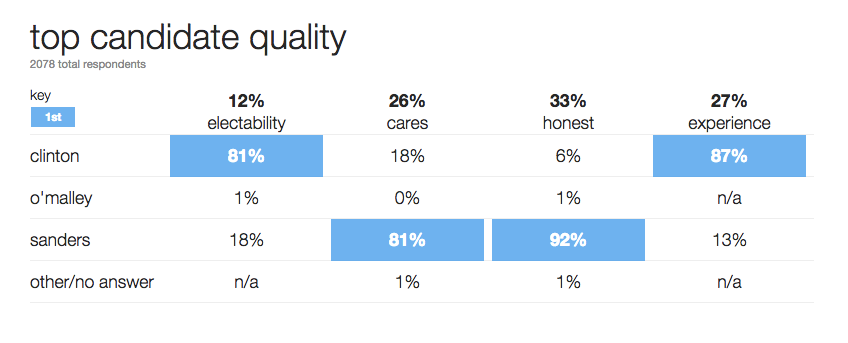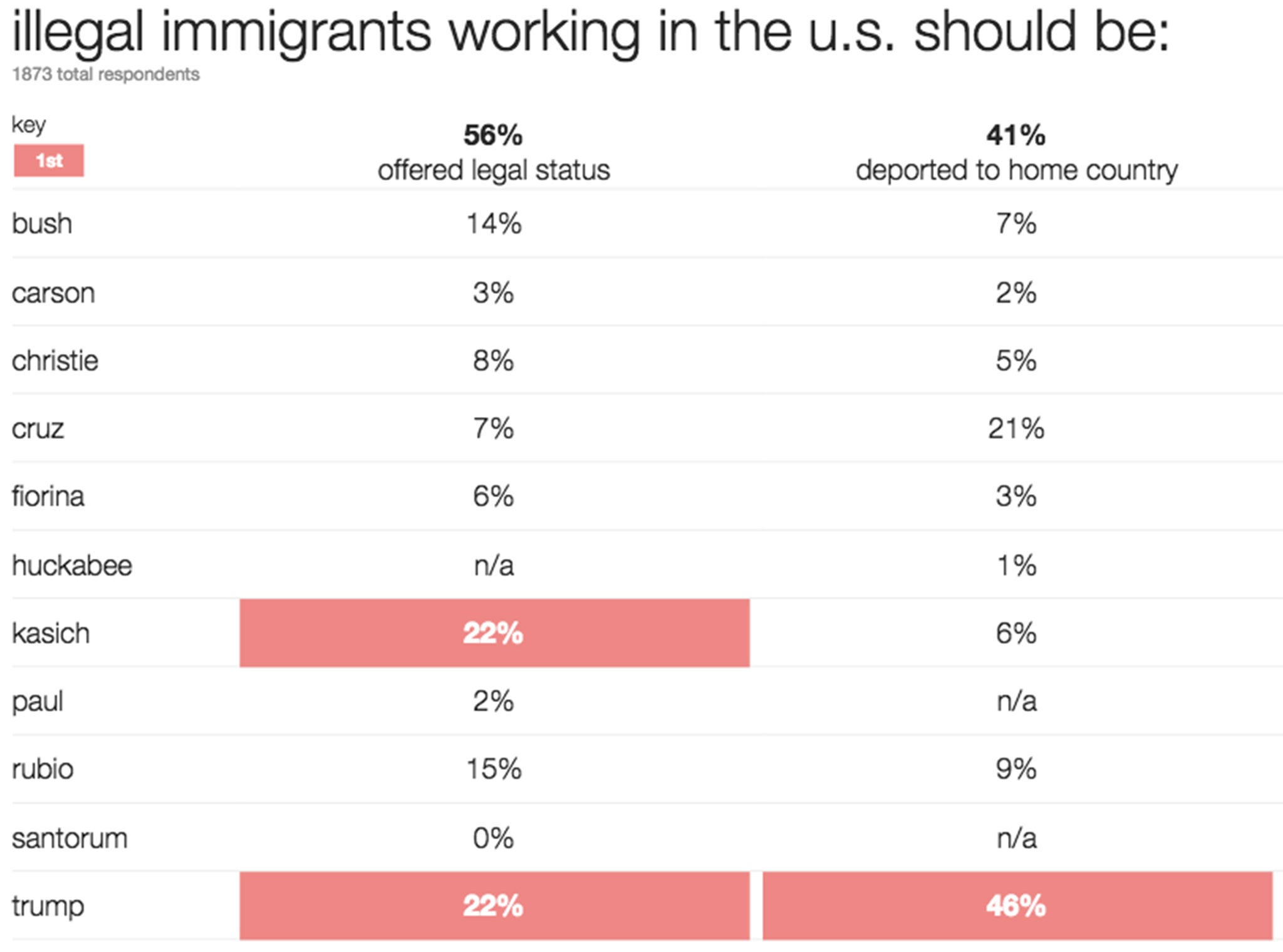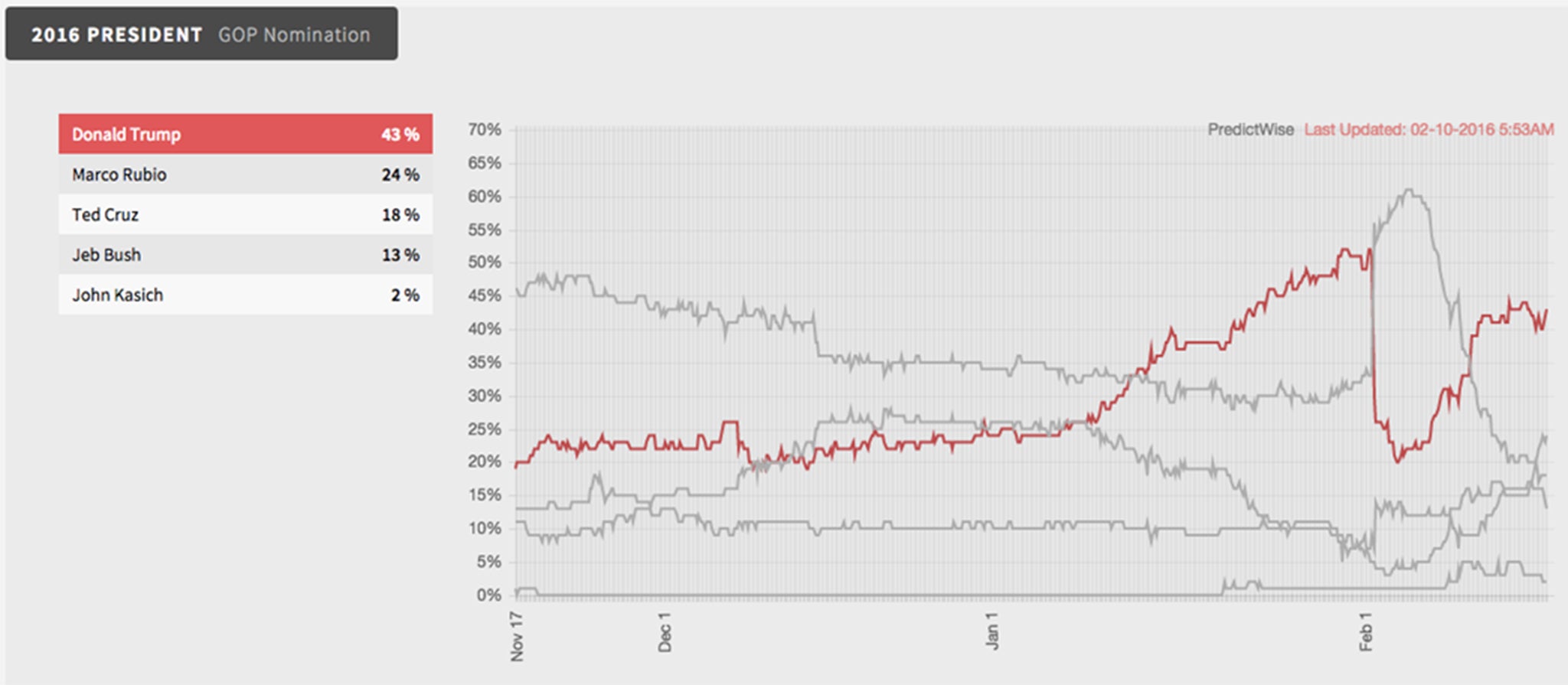2 charts that explain exactly why Donald Trump and Bernie Sanders won
Their wins were inconceivable just months ago, so how did they triumph?

How did Trump win in New Hampshire, a state which has traditionally supported moderate and establishment candidates?
To put his victory into context, 14 of the past 17 winners in the state have gone on to be the Republican nominee.
Primarily, he won because 48 per cent of New Hampshire Republicans wanted someone from "outside the establishment", and 57 per cent of those voters backed him, via CNN.

Just 6 per cent of those who wanted someone "experienced in politics" voted for him. Forty-six per cent of voters wanted someone like that.
In other words, half the party in New Hampshire wanted an experienced candidate, while half wanted an outsider.
There has never been so much desire for an outsider.
If only voters who want experience had voted, it would have been a three-way race between former Ohio governor John Kasich (25 per cent), former Florida governor Jeb Bush (21 per cent) and Florida senator Marco Rubio (20 per cent).
That is the kind of race the establishment was expecting six months ago. But Trump has either created the desire for an outsider or filled a wish that was already there.
That’s why he won last night.
His chances of winning the nomination will depend on how much Republican voters in other states – especially the big, Obama-voting, delegate-rich states like California, New York, Florida and Ohio – want a candidate with experience or an outsider.
Feel the Bern
In the Democratic race, one chart also captures how Sanders won.
In Iowa, Democrats were split almost evenly between those who wanted a candidate with "experience" and "electability" and those who wanted someone who "cares" and is "trustworthy". Clinton won the former, Sander the latter, and they tied overall.
In New Hampshire, 59 per cent wanted a caring/trustworthy candidate and 39 per cent wanted an experience/electable one. And that is exactly the same as the overall result: Sanders won the former in similar proportions to Clinton winning the latter.

In other words, this race will be determined by whether Democrats in other states - especially the big states - want a candidate of one sort or the other.
It's a very similar divide to the split in the Republican party. Outsider or insider? That's what both of these races are about.
Results in depth
That's the race in two charts. We can also talk about it in far more detail.
Another way of thinking about last night's Democrat divide is "Independents" versus "Democrats".
Three in every five Democrats who voted last night identified as "Democrats’. Among those voters, Sanders only beat Clinton 52-48.
But only 58 per cent of voters identified as Democrat. 40 per cent identified as "independent".
Among those voters, Sanders won 72 per cent to 25 per cent.

Independents have typically been thought of as more centrist and moderate than self-described Democrats, but Sanders is clearly to the left of Clinton; he calls himself a socialist.
The independents that gave Sanders his 21-point win last night were either fairly left-wing or chose Sanders because he was a candidate who actually has something to say.
It’s not clear what Clinton is running to do, other than be President.
Sanders’ campaign can be captured in one word: inequality. The first word that comes to mind with Clinton is power.
That focus on inequality fuelled Sanders’ support last night. One-in-three voters said that "income inequality" was the most important issue to them, and Sanders won those voters 70-29 per cent.

And how should income inequality be solved? 78 per cent of New Hampshire Democrats were clear: "tax the rich".

Trump is moderate?
Sanders’ success with "independents" echoed Trump’s popularity with self-described "moderates" in the Republican race.
These moderates have also typically been thought of as more centrist, and relatively close to the ‘independents’ in Democrat races. But Trump won them last night, as he did in Iowa.

His support defies all logic.
As President, Trump would introduce a ban on Muslims entering the US and wants to deport all illegal immigrants – these aren’t positions the political class or media consider "moderate".
Indeed, the majority of New Hampshire Republicans actually favour offering illegal status to illegal immigrants, and yet Trump was tied for first among those voters.

What now?
What does anyone know? In this race the facts change every week.
This is fast becoming the most volatile election ever. The chart below shows the odds of each Republican candidate winning their party’s nomination over the past three months.
Donald Trump is once again the clear favourite in the betting markets after winning last night.

But look at how things keep changing (see full-size graphic here).
Marco Rubio, a more-than 50 per cent favourite just days ago, has seen his chances halve after a disastrous debate performance on Saturday and an atrocious fifth place finish last night.
This is the exact reverse of what happened after Iowa. Then it was Trump whose chances collapsed and Rubio who shot up.
On the Democratic side, Clinton remains the overwhelming 5:1 favourite to beat Sanders, but that is all based on Sanders’ lack of support among non-white voters.
Non-white voters make up a tiny proportion of voters in Iowa and New Hampshire, but around 30 per cent of general election voters, and an even bigger proportion of Democratic primary voters.
As long as Hillary maintains her lead among them, and doesn’t fall any further among white voters, she should still beat Sanders.
Yet in a fortnight Sanders may have overcome that gap.
In this race, anything’s possible.
Join our commenting forum
Join thought-provoking conversations, follow other Independent readers and see their replies
Comments